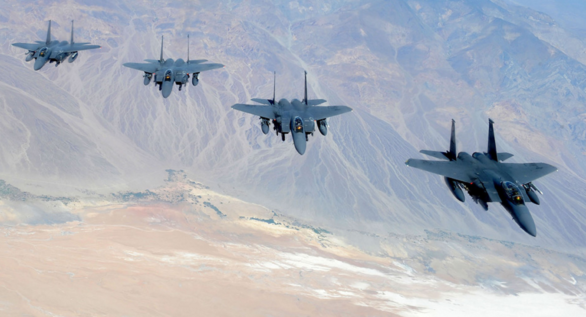
Gulf states must work out their differences before they can buy any more weapons from the US, an influential American lawmaker has warned.
Yesterday, the chairman of the US Senate Foreign relations committee Bob Corker expressed concern about the ongoing Gulf crisis.
In a letter to US Secretary of State Rex Tillerson, he said “recent disputes among the GCC countries only serve to hurt efforts to fight ISIS and counter Iran.”
I will withhold consent on future arms sales to GCC until a path to resolve the dispute is established. My letter: https://t.co/PTOlC5Wcmk.
— Senator Bob Corker (@SenBobCorker) June 26, 2017
Corker added:
“Before we provide any further clearances during the informal review period on sales of lethal military equipment to the GCC states, we need a better understanding of the path to resolve the current dispute and reunify the GCC.”
Escalating crisis
It’s been three weeks since Saudi Arabia, the UAE and Bahrain cut off diplomatic and economic ties to Qatar for political reasons.
The crisis escalated last week after the nations presented a 13-point list of demands to Doha. They included closing Al Jazeera, shutting down a Turkish military base and cutting off ties with certain political groups.

Corker’s pledge to halt arms sales comes a day after Tillerson said that many of the demands would “be very difficult for Qatar to meet.”
On Sunday, he urged GCC nations to sit together to work out the dispute, adding that “a lowering of rhetoric would also help ease the tension.”
F-15 deal in question
A US arms embargo would directly affect recent weapons orders by both Qatar and Saudi Arabia.
Earlier this month, Qatar signed a deal to purchase $15 billion in F-15 fighter jets. Meanwhile, Saudi Arabia has been talking about buying some $110 billion in weapons from US manufacturers.

In the US, big arms sales come across the desk of the chairman of the House and Senate foreign affairs committees for preliminary approval.
Congress then has about a month to review the deals, and decide whether to take action against them.
According to some analysts, the threat of withholding sales could provide an impetus for the GCC nations to resolve their differences.
This largely helps Tillerson in pressure to end the dispute. GCC countries have many disagreements, but none want a block on US arms sales
— Joyce Karam (@Joyce_Karam) June 26, 2017
Qatar’s foreign minister is expected to meet Tillerson today, as the deadline for responding to its neighbors’ demands draws near.
Thoughts?






